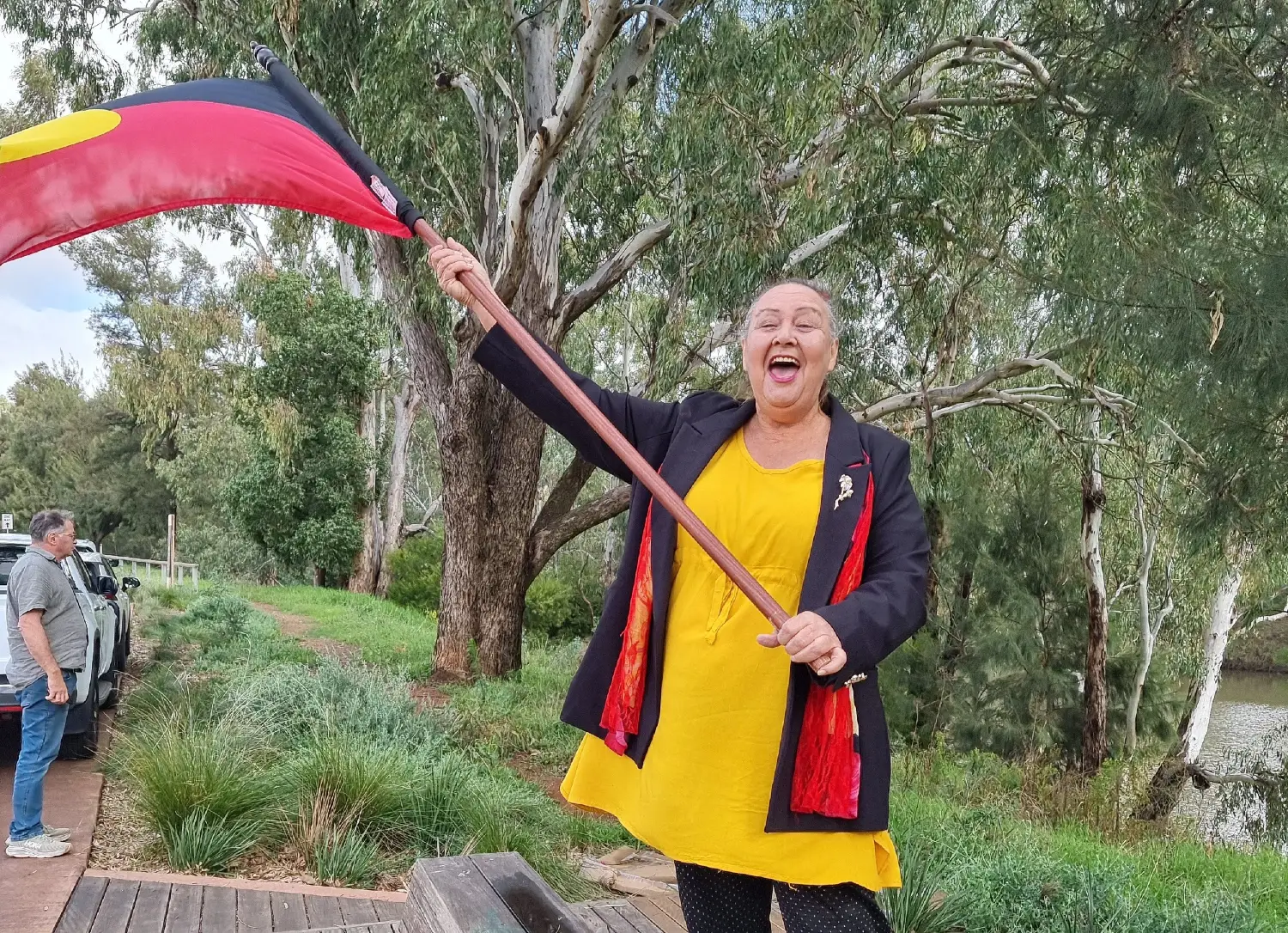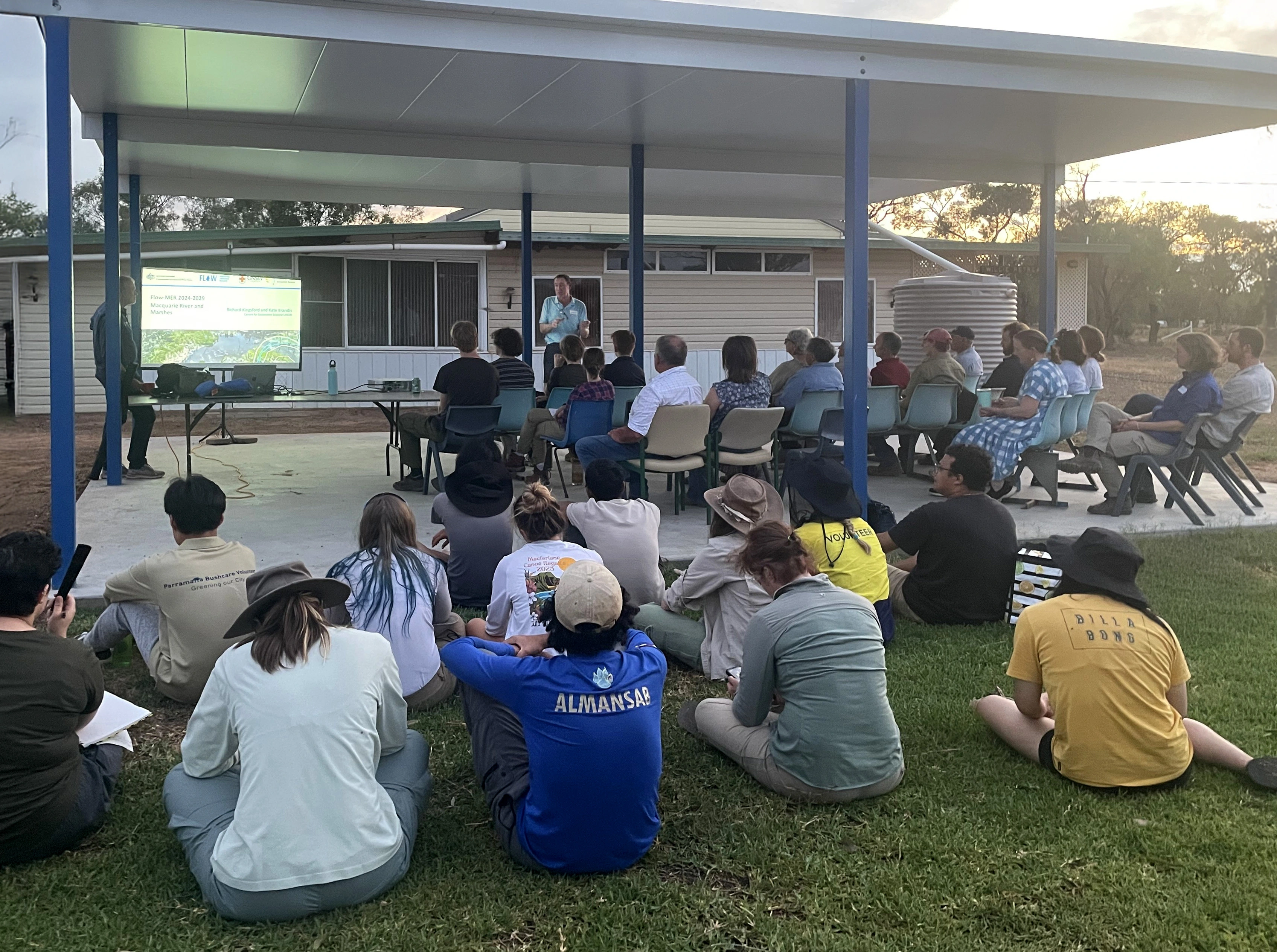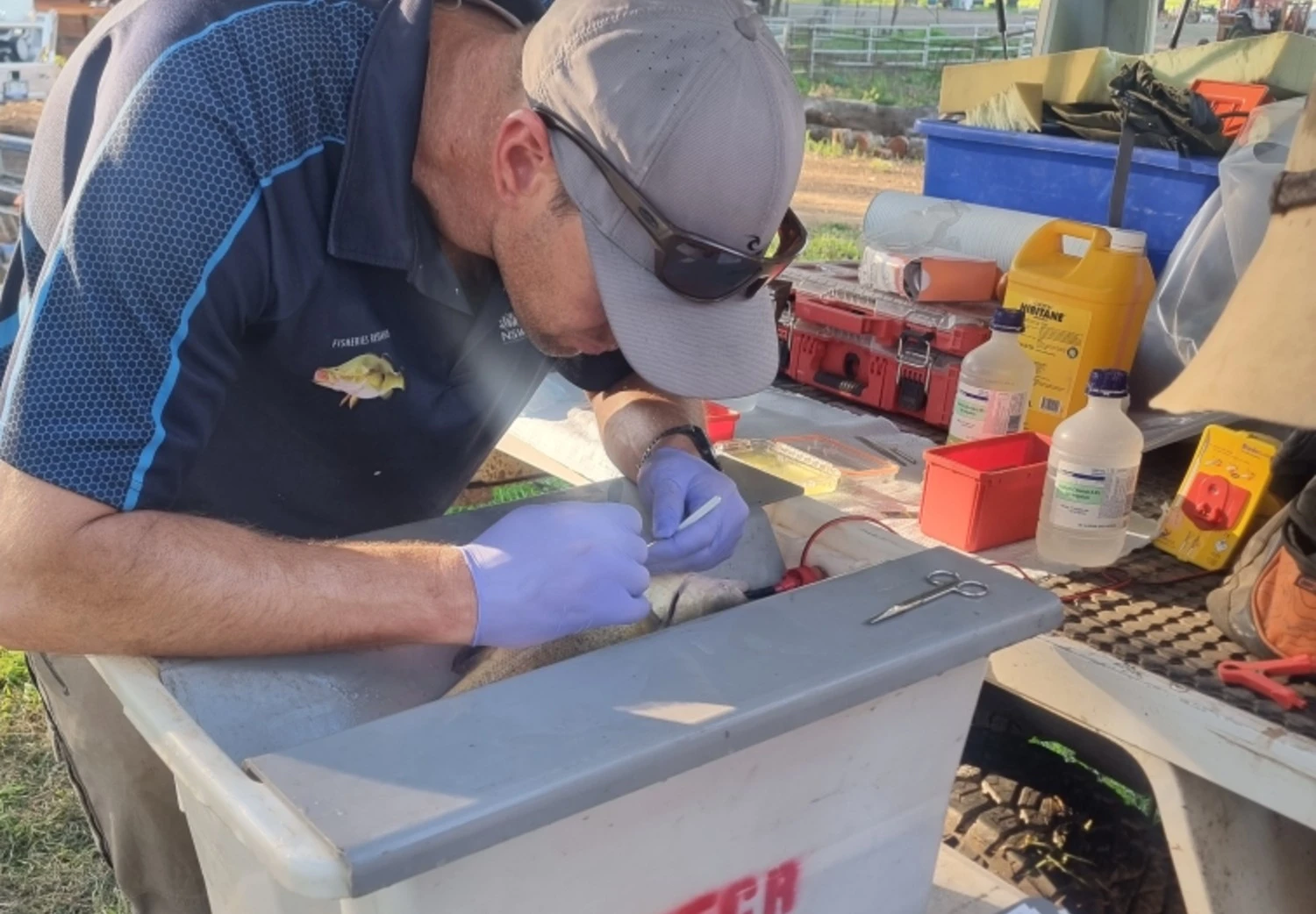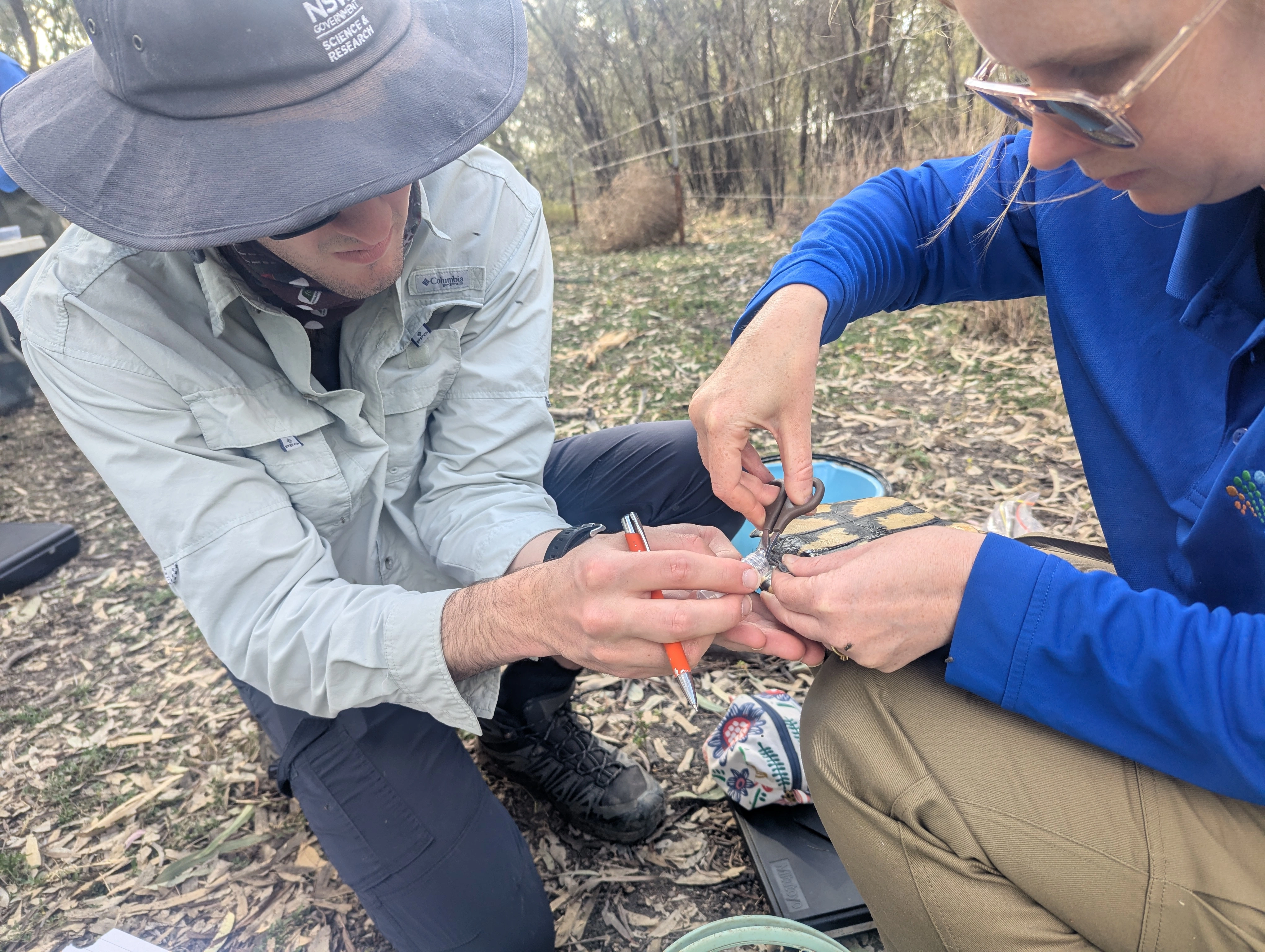The Lachlan River flows through the traditional lands of the Wiradjuri, Nari Nari, Mutthi Mutthi, Ngiyampaa, and Yita Yita Nations forming songlines and dreaming tracks. Scientists and practitioners from the Centre for Applied Water Science, University of Canberra, conduct Flow-MER activities in the Lachlan River System. Together, they form the Lachlan Area-scale Project Team.
Isabel Goolagong, a proud Wiradjuri woman, has been appointed as a Cultural Advisor for the Lachlan Area-scale team. Under the guidance of Isabel and the other advisors, the team will understand how First Nations knowledge and science can inform and change current approaches to monitoring, evaluation, and research. Working together will support guiding the local community in understanding Traditional Owners’ knowledge and science about river and floodplain ecosystems. Isabel also helps facilitate knowledge exchange and culturally sensitive engagement with local First nations communities.
1. Could you please introduce yourself, including where do you live and work?
I am Isabel Goolagong from the Kalari Bila, Wiradjuri Country, and I currently live in Clare, South Australia. Clare sits in the heart of the Clare Valley and is surrounded by vineyards. It is about a 2-hour drive from Adelaide. The traditional owners of the area are the Ngadjuri People who currently hold Native title rights to the area.
I am actively engaged in water resource management and Indigenous representation. I am a Committee Member of the Lachlan Kalari Bila Aboriginal Water Committee, An Advisory Committee Member for the Aboriginal Water Entitlements Program (AWEP), a Lachlan River consultant for the Murray Lower Darling Rivers Indigenous Nations (MLDRIN), A Cultural Advisor for the Flow-MER Program and a traditional consultant for workshops and consultations on legislative changes to the Water Resource Plans (WRP).
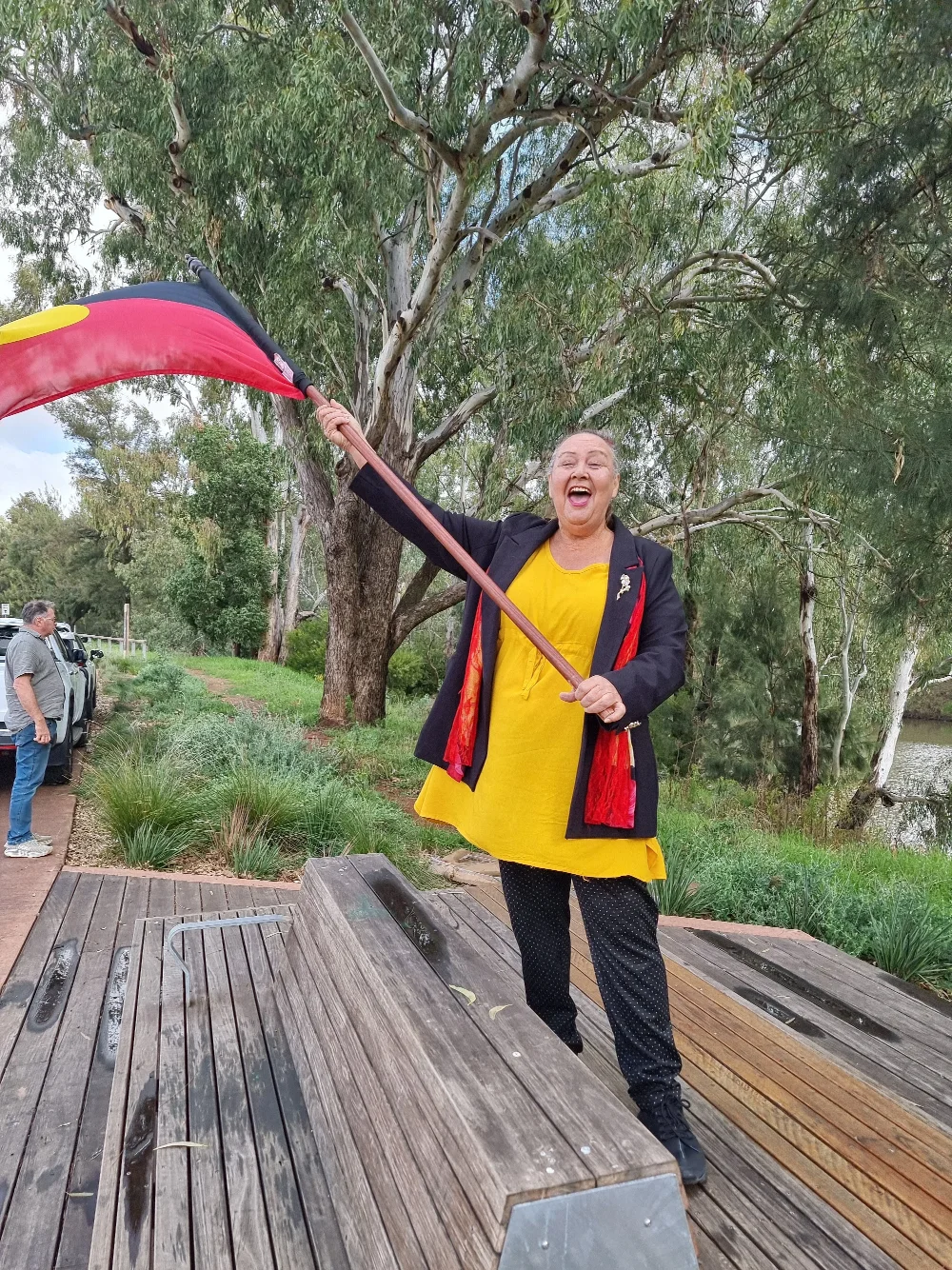
2. Where did you grow up?
I was born at Cowra, NSW, during the big flood of January 1959. I lived with my parents at Goolagong (Gooloogong, as it is spelled since around the 1970s) for the first 5 years of my life on an Aboriginal Reserve on the Lachlan, or Kalari as the Wiradjuri people call it. Our home was bulldozed, and we had to move around 1964. My father worked on properties around the Condobolin area, so we spent a lot of time on farms around the area for about another 5 years, before we moved to Willow Bend which in them days was just called the Mission at Condobolin. So that’s where I spent most of my adult life on the Lachlan (Kalari Bila).
3. Where have you worked previously?
Over the years, I have worked and contributed to various projects, including serving as the acting CEO for the Condobolin Local Aboriginal Land Council (LALC) in 2009 and working internationally in recruitment and project management in Tunisia and Morocco. I have also held the role of Community Development and Employment Liaison Officer in Port Lincoln, South Australia. I have managed my own private cleaning business on the Central Coast for over 10, I have built and managed a call centre in Morocco for a Romanian based company. I have experience as a Radio Station Manager having worked for Indigenous radio in South Australia and Victoria, and have worked for the Australian Film, Television and Radio School in Sydney (AFTRS).
4. What attracted you to work in rivers and wetlands (and managing freshwater)?
It is not so much what attracted me, but a rising need to actively do my part for my mob on the river, after voicing their sadness at the state of the river and waterways on the Kalari during a 2018 consultation. After hearing their stories and feeling their pain regarding the disconnection from land, not being heard in the water space, and not being able to take care of their water as mob has done for centuries, I was, as you might say, “thrown into the arena” by the Elders.
5. What is your role in the Flow-MER Program?
Although I am considered to be a Cultural Advisor to the Flow-MER Program, I see myself as an advocate for my Kalari people and as a resource to build bridges and rapport between local mob and the wider non-indigenous communities working to preserve our beautiful waterways on and around the Kalari. As the original scientists and inhabitants of the Kalari for centuries, our advice and skills can only complement western science for a better outcome of our waterways.
6. What is special about the Lachlan (Kalari Bila)?
During the dreamtime, many centuries ago, the Wiradjuri Kalari created the rivers of the Wiradjuri Nation by spearing the great porous rock beneath the earth and releasing the healing waters of Mother Earth. That was done with such force that the overflow resulted in the creation of other rivers in the Wiradjuri Nation, therefor the Lachlan/Kalari Bila is the mother and creator of the rivers and waterways of Wiradjuri. She is a loving mother who has cared for her people for centuries.
7. What is your favourite place in the Lachlan River catchment and why?
The whole of the Kalari Bila is running through my veins but my favourite places that will always draw me back to them will always be Gooloogong (home by the river) – my first home, Condobolin – the heart of my home (place of shallow crossing), and Euabalong, Lake Cargelligo – the home of my mother’s people. Having had gathered a lifetime of good memories fishing, swimming and hearing stories with my family and elders, this is where I will always be drawn back to.
8. Is there anything you would like to share about the Lachlan River and your connection to it?
Mother Earth mourns of what used to be a beautiful gift of her healing blood she provided for us, and she mourns the misuse and abuse of her life-giving gift. I feel the pain in my heart and soul. I cry for her suffering and hope that if we work together, we can preserve the great gift we have been given for our future generations.
9. Tell us something interesting about yourself.
I am a bit of a character. I have travelled most of the world and experienced other cultures, lifestyles, food, and their connections to Mother Earth, but I will always be drawn home to my Kalari.

